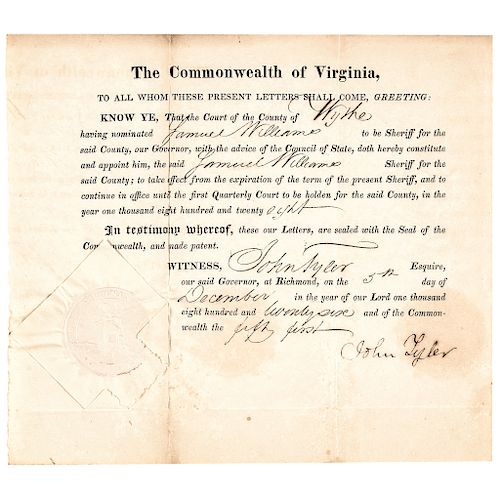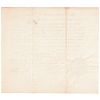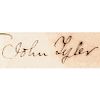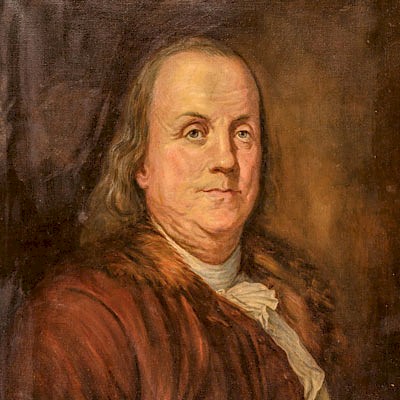December 5, 1826 JOHN TYLER Signed Sheriffs Appointment as Governor of Virginia
Lot 91
Estimate:
$800 - $1,000
Absentee vs Live bid
Two ways to bid:
- Leave a max absentee bid and the platform will bid on your behalf up to your maximum bid during the live auction.
- Bid live during the auction and your bids will be submitted real-time to the auctioneer.
Bid Increments
| Price | Bid Increment |
|---|---|
| $0 | $10 |
| $200 | $20 |
| $300 | $25 |
| $500 | $50 |
| $1,000 | $100 |
| $2,000 | $200 |
| $3,000 | $250 |
| $5,000 | $500 |
| $10,000 | $1,000 |
| $20,000 | $2,000 |
| $30,000 | $2,500 |
| $50,000 | $5,000 |
| $100,000 | $10,000 |
| $200,000 | $20,000 |
| $300,000 | $25,000 |
| $500,000 | $50,000 |
About Auction
By Early American History Auctions
Aug 24, 2019
Set Reminder
2019-08-24 12:00:00
2019-08-24 12:00:00
America/New_York
Bidsquare
Bidsquare : Autographs, Colonial Currency, Political Americana, Historic Guns
https://www.bidsquare.com/auctions/early-american-history-auctions/autographs-colonial-currency-political-americana-historic-guns-4347
Historic Autographs • Colonial Currency • American Civil War Colonial Era • Revolutionary War • Political Americana • Black History Early American History Auctions auctions@earlyamerican.com
Historic Autographs • Colonial Currency • American Civil War Colonial Era • Revolutionary War • Political Americana • Black History Early American History Auctions auctions@earlyamerican.com
- Lot Description
Autographs
"John Tyler" Appointment as Governor of Virginia
JOHN TYLER (1790 - 1862). Tenth President and Vice President (1841) of the United States (1841-1845) following the death of William Henry Harrison, Annexed Texas from Mexico, and he remained loyal to Virginia following its Secession from the Union, served as a Virginia State Legislator, Governor, U.S. Representative, and U.S. Senator.
December 5, 1826-Dated, Partially-Printed Document Signed, "John Tyler" as Governor of Virginia (December 10, 1825-March 4, 1827), Choice Very Fine. This Document is 1 page, measuring about 7" x 7.75", being an official Appointment of Samuel Williams as Sheriff. Boldly printed in deep black and manuscript portions written in rich brown ink on quality clean wove period paper, having a sharp, full embossed official red Wax and Paper Seal at lower left. Clean and bold in appearance, having excellent eye appeal for display.
John Tyler (March 29, 1790 - January 18, 1862) was the tenth president of the United States from 1841 to 1845 after briefly serving as the tenth vice president (1841); he was elected to the latter office on the 1840 Whig ticket with President William Henry Harrison.
Tyler ascended to the presidency after Harrison's death in April 1841, only a month after the start of the new administration. He was a stalwart supporter of states' rights, and as president he adopted nationalist policies only when they did not infringe on the powers of the states. His unexpected rise to the presidency, with the resulting threat to the presidential ambitions of Henry Clay and other politicians, left him estranged from both major political parties.
Tyler, born to a prominent Virginia family, became a national figure at a time of political upheaval. In the 1820s the nation's only political party, the Democratic-Republicans, split into factions. He was initially a Democrat, but opposed Andrew Jackson during the Nullification Crisis, seeing Jackson's actions as infringing upon states' rights, and criticized Jackson's expansion of executive power during the Bank War. This led Tyler to ally with the Whig Party. Tyler served as a Virginia state legislator, governor, U.S. representative, and U.S. senator. He was put on the 1840 presidential ticket to attract states' rights Southerners to a Whig coalition to defeat Martin Van Buren's re-election bid.
With the death of President Harrison after just one month in office, Tyler became the first vice president to succeed to the presidency without election. He served longer than any president in U.S. history not elected to the office.
To forestall constitutional uncertainty, Tyler immediately took the oath of office, moved into the White House, and assumed full presidential powers, a precedent that governed future successions and was codified in the Twenty-fifth Amendment. While Tyler did sign into law some of the Whig-controlled Congress's bills, as a strict constructionist he vetoed the party's bills to create a national bank and raise the tariff rates. Believing that the president should set policy rather than Congress, he sought to bypass the Whig establishment, most notably Kentucky Senator Henry Clay.
Most of Tyler's Cabinet resigned soon into his term, and the Whigs, dubbing him His Accidency, expelled him from the party. Tyler was the first president to see his veto of legislation overridden by Congress. Although he faced a stalemate on domestic policy, he had several foreign-policy achievements, including the Webster-Ashburton Treaty with Britain and the Treaty of Wanghia with Qing China.
The Republic of Texas separated from Mexico in 1836; Tyler, a firm believer in manifest destiny, saw its annexation as providing an economic advantage to the United States, and worked diligently to make it happen.
He initially sought election to a full term as president, but after failing to gain the support of either Whigs or Democrats, he withdrew in support of Democrat James K. Polk, who favored annexation. Polk won the election, and Tyler signed a bill to annex Texas three days before leaving office. Under Polk, the process was completed. After the American Civil War began in 1861, Tyler joined the government of the Confederacy; he won election to the Confederate House of Representatives shortly before his death.
Although some have praised Tyler's political resolve, his presidency is generally held in low regard by historians. He is considered an obscure president, with little presence in American cultural memory
- Shipping Info
-
Early American provides in-house worldwide shipping. Please contact us directly if you have questions about your specific shipping requirements.
-
- Buyer's Premium



 EUR
EUR CAD
CAD AUD
AUD GBP
GBP MXN
MXN HKD
HKD CNY
CNY MYR
MYR SEK
SEK SGD
SGD CHF
CHF THB
THB













